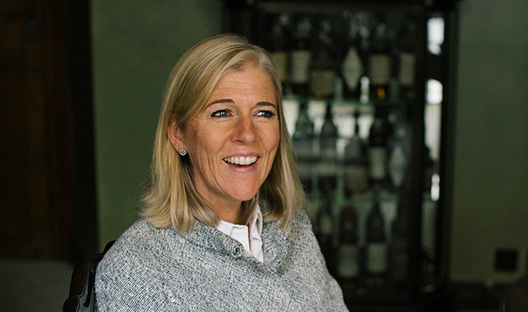
The Next Generation: to Join or Not to Join?
Juggling a family and a thriving business is hard. But family business owners face a unique dilemma: should they bring their children up to someday run the company, or should they look elsewhere for their successors and encourage their children to find their own ways in life?

Investec hosted another lunch with a group of successful UK founders and family business leaders to discuss the dynamics and challenges involved in bringing on board the next generation.
If you believe the movies, succession is simple: mum and dad invite the eager next generation to join the firm and – when the time is right – they hand over the business and everyone lives happily ever after. Unfortunately, the reality is not so straightforward. Bringing the next generation into a business can be fraught with challenges for both groups.
This fundamental tension was the focus of Investec’s most recent Founders and Family Business Lunch, which forms part of our overarching Founders and Family Business Network. The guest speaker was Lizzy Rudd, Executive Chairman of Berry Bros & Rudd, one of the UK’s oldest family-owned businesses and Britain’s oldest wine and spirit merchant, having traded from the same shop since 1698.
The attendees were leaders of founder- or family-controlled businesses, all of whom were either considering bringing children on board or had experience of doing so. Among our guests, it was quickly apparent that the issue has changed significantly over the generations. One lunch guest explained how different the perceptions of children’s generation are compared with her and her father’s generation. Historically, there wasn’t the option of whether or not to go into your family’s business. It was assumed, or even required, as a family member that you would work in the company.
The founders in the room had been on personal journeys to set up their businesses, and felt it was important for a child’s development to see the struggle and the commitment required to build a business.
Now though, the attitudes are different, and sometimes the generational difference can be stark with dynamics that need to be carefully managed. The automatic assumption is now a more nuanced decision, with parents asking themselves whether encouraging their children to join is the right thing to do. Should they leave their children to find their own path? A couple of lunch attendees saw their business as an enabler, providing funds to give their children a platform for them to do something else, totally separate from the business. Legacy doesn’t always mean handing it to the kids.
However, one area where our lunch guests did agree was that children should get experience elsewhere before coming into the business. The founders in the room had been on personal journeys to set up their businesses, and felt it was important that their children see the challenges that people face when setting up a company. The proponents of this view said they felt it was important for a child’s development to see the struggle and the commitment required to build a business.

Another major question was whether children should simply be given the business, or whether they should “earn it.” One participant said that he would not pass the business on to the next generation, and would instead encourage them to create their own wealth. He felt that simply giving them the business - or wealth - would damage their work ethic.
No participants said they planned to hand their business over to their children for free. Since they had worked hard for their businesses, they felt their children would value it more if they had to earn it somehow.
The discussion then moved on to whether you should keep your business in the family and benefit from the unique strengths that come along with that, such as consistent values and culture, or whether you should look elsewhere and focus on finding the most qualified person.
families are as complex as businesses; the transition from one generation to the next can often make or break a business, and can even break a family if mismanaged.
The majority of the attendees felt that the right choice was to go with the best person to run the business. But bringing people in from outside, you run the risk that your company may lose its way.
A strong combination of values and vision is one of the special strengths of founder and family businesses. Families that are able to define and articulate their shared values give their businesses a strong foundation for long-term competitive advantage and sustainability. Without the presence of shared values or vision, opportunities for conflict can arise.
While being able to bring in fresh talent that shares your blood should make the process of passing on shared values easier, some family companies like to go one step further and articulate those values formally in a constitution signed by all generations.
If you bring family into the business, they probably live and breathe the values already, and you don’t need to articulate them. If you bring in someone externally, you’ll need to work even harder to find someone who is not only qualified, but also shares your values. This is so important to Berry Brothers & Rudd that Lizzy Rudd said this is the first thing she and her team assess. They believe that there are already enough people in the world with the technical skills, so their first priority is to assess whether the candidate’s values are aligned with those of the business. In that respect, it is important to have a family constitution that enshrines not just the business mechanics, but the values of the family, according to Lizzy Rudd, who has played a fundamental role in the establishment of the Family Board.
One thing all guests agreed on is that families are as complex as businesses; the transition from one generation to the next can often make or break a business, and can even break a family if mismanaged.
About the Founders and Family Business Network

Family and founder-led businesses are known for their ambitious and driven spirit. As a founder-led business ourselves, Investec understands the unflinching personal commitment of business owners and the unique challenges they face.
Our network brings together some of the most enterprising founders and family business leaders to share knowledge, insights and experiences that have helped shape their decisions and guide them to long-term success. By joining our network, you will have access to astute commentary and reports, as well as carefully curated networking events.
Whether you are a first generation entrepreneur, planning for growth or thinking about legacy, the network provides a platform to share and inspire each other. Get in touch below to start receiving our monthly newsletter.
Register for the Founders and Family Business network newsletter >
Find out more about our upcoming family and founder events
Read more from our Founders and Family Business series
Browse articles in
